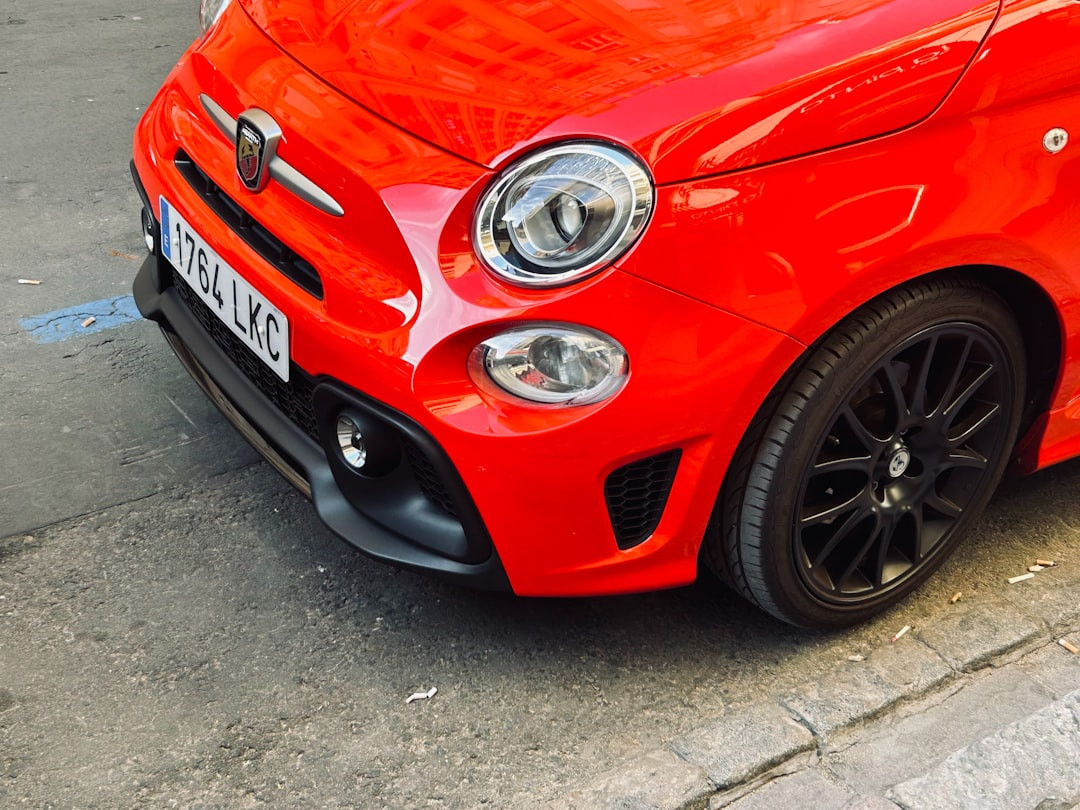Embarking on the journey of adopting a Doberman can bring a blend of valor and velvet to your life, but is this majestic breed the right fit for your home? Uncover the pivotal points of canine companionship with our essential read, “10 Doberman Pros & Cons: Essential Insights Before You Adopt”. Dive into the heart of what makes these dogs both a formidable guardian and a loving family member, and decide if you’re ready to welcome the elegance and energy of a Doberman into your life. Whether you’re seeking a loyal protector or questioning the breed’s compatibility with your lifestyle, these insights will guide you through the intricacies of Doberman ownership. Join us as we fetch the facts and debunk the myths about these distinguished dogs, tailoring your decision to the pawprints of your own life.
The 5 Doberman Pros

Pros:
-
Intelligence: Dobermans are known for their sharp intelligence, making them highly trainable. They can learn commands quickly and perform a wide range of tasks, which is why they’re often used in police and military roles.
-
Loyalty: A Doberman is extremely loyal to its family. This breed is known for forming strong bonds with its owners and can be protective, always alert and ready to defend the household if they sense a threat.
-
Energy Levels: Dobermans have high energy levels and enjoy being active. They are great companions for running, hiking, and other outdoor activities, which can be rewarding for owners who lead an active lifestyle.
-
Guarding Ability: Due to their natural protective instincts, Dobermans make excellent guard dogs. They have a formidable presence and a bark that can deter intruders effectively.
-
Health: Although Dobermans are prone to certain genetic health issues, they are generally healthy dogs with the proper care, regular check-ups, and a proper diet. Their lifespan typically ranges from 10 to 13 years.
Cons:
-
Aggression Issues: If not properly trained and socialized from a young age, Dobermans can develop aggressive behavior towards strangers or other animals. It’s vital to train them consistently and with positive reinforcement to mitigate this risk.
-
Exercise Requirements: Their high energy levels mean Dobermans require a significant amount of exercise. If they don’t get enough physical and mental stimulation, they may become restless and exhibit destructive behaviors.
-
Health Problems: Despite being generally healthy, the breed is at risk for genetic conditions such as dilated cardiomyopathy, von Willebrand’s disease, and hip dysplasia. Prospective owners need to be prepared for potential associated healthcare costs.
-
Not Ideal for Novice Owners: Dobermans can be challenging for first-time dog owners. They require firm, consistent training and a confident handler who can establish and maintain the role of pack leader.
-
Separation Anxiety: This breed can suffer from separation anxiety due to their strong bonds with their owners. They can become distressed and destructive if left alone for extended periods, so they’re not the best choice for people with long work hours away from home.
1. Brains and Beauty

Pros:
-
Intelligent Companions: Dobermans are known for their high intelligence, making them one of the easiest breeds to train. Their capacity for understanding and executing complex commands makes them suitable for a variety of roles, including service and therapy work.
-
Loyal Protectors: With a natural instinct to guard, Dobermans are fiercely loyal to their families. They are often excellent watchdogs, consistently ensuring the safety and security of their home.
-
Physical Elegance: Dobermans possess a sleek and powerful physique that epitomizes beauty in the canine world. This breed has an aristocratic appearance that can be a real head-turner.
-
Active Lifestyle Companions: For those seeking an active pet, Dobermans are a great fit. They thrive on exercise and mental stimulation, which can make for a fun and engaging pet for active owners.
-
Health Awareness: Due to their popularity, there’s significant awareness about the breed’s health issues, allowing for proactive care and prevention strategies to ensure they live a long and healthy life.
Cons:
-
Exercise Requirements: Dobermans require a lot of exercises to keep their physical and mental health in check. Without adequate stimulation, they can develop behavioral problems.
-
Potential for Aggression: If not properly trained and socialized from an early age, Dobermans can become overly protective and possibly aggressive. Responsible ownership and early socialization are crucial.
-
Health Challenges: Dobermans are susceptible to a number of health conditions including dilated cardiomyopathy, Wobbler syndrome, and hip dysplasia, which can be emotionally and financially challenging for an owner.
-
Not Ideal for Sedentary Owners: Given their need for regular exercise and mental engagement, Dobermans are not the best match for less active individuals or those with sedentary lifestyles.
-
Size and Strength: Their size and strength can be a drawback for those unable to provide firm and consistent training. A Doberman’s physical power requires them to be well-behaved to prevent issues during walks or encounters with people and animals.
Before adopting a Doberman, it’s essential to consider whether you can commit to the responsibilities of training, exercise, and healthcare that come with this breed. Their intelligence and loyalty can be a wonderful asset to the right owner, but these characteristics also demand your time and attention to ensure a well-adjusted and happy dog.
2. Protective and Loyal

Dobermans are well-known for being exceptionally protective and loyal animals, traits that contribute to their popularity as both family pets and guard dogs. These characteristics are two key aspects of their temperament, which potential adopters should consider before bringing a Doberman into their household.
Pros:
-
Natural Protectors: Dobermans have a strong instinct to guard and protect their territory and loved ones. This makes them excellent watchdogs.
-
Loyal Companions: They tend to form deep bonds with their owners, offering a level of companionship that is both profound and endearing.
-
Deterrent to Intruders: The mere presence of a Doberman can act as a deterrent to potential burglars or attackers due to their formidable appearance and reputation.
-
Good With Families: When properly trained and socialized, Dobermans can be very good with children and other family members, showing patience and loyalty.
-
Intuitive to their Owner’s Emotions: They are very attuned to their owner’s feelings, often providing comfort and protection when sensing that their owner is sad or in distress.
Cons:
-
Can Be Overprotective: Without proper training, Dobermans may become overly protective, leading to aggressive behaviors towards strangers or other animals.
-
Requires Strong Leadership: They typically need a confident and assertive owner who can establish clear rules and boundaries, or else they may attempt to assert dominance.
-
Not Ideal for Inexperienced Owners: Due to their strong protective instincts, novice dog owners may find it challenging to train and handle a Doberman.
-
Socialization is Key: Failure to properly socialize a Doberman can result in an overly suspicious dog that does not tolerate strangers or new environments well.
-
Liability Concerns: Due to their protective nature, there might be increased liability issues, as homeowners’ insurance policies may have stipulations or exclusions for certain breeds, including Dobermans.
In conclusion, the protective and loyal nature of Dobermans can be a significant advantage for owners seeking a devoted guardian and companion. However, it is essential these traits are channeled correctly through training, socialization, and responsible ownership to prevent any negative behaviors associated with overprotectiveness. Adopting a Doberman entails a commitment to understanding and catering to their specific needs to ensure they become well-adjusted and balanced family members.
3. Energetic

Pros of Dobermans Being Energetic:
- Active Companion: Dobermans, with their high energy levels, make excellent companions for active individuals or families who enjoy engaging in regular physical activities like running, hiking, or playing fetch.
- Agility and Training Potential: Their energy, when channeled properly, makes Dobermans exceptional at agility training and other dog sports, highlighting their intelligence and ability to learn quickly.
- Protective Nature: An energetic Doberman is always alert and ready to respond to potential threats, making them effective guard dogs.
- Encourages Exercise: Owning an energetic Doberman can encourage owners to maintain an active lifestyle, which can be beneficial for both the owner’s and dog’s health.
- Playfulness: Dobermans often retain their playful energy as they age, providing years of fun and entertainment for the family.
Cons of Dobermans Being Energetic:
- Requires Ample Exercise: Dobermans require a significant amount of exercise to manage their energy levels, which can be a challenge for owners who have limited time or mobility.
- Potential for Destructive Behavior: If not given enough mental and physical stimulation, an energetic Doberman can become bored and may engage in destructive behaviors as an outlet.
- Not Suitable for Small Living Spaces: Their high energy levels can make Dobermans less suitable for apartment living unless they are provided with ample opportunities to expel their energy outdoors.
- Training and Socialization: Energetic breeds like Dobermans require consistent training and socialization from an early age to ensure they are well-behaved and can be controlled in high-energy situations.
- Overexcitement: Dobermans might become overexcited when they get to play or when guests arrive, which can be overwhelming for some people and might require extra effort to manage their exuberance.
4. Versatility

Pros of Doberman Versatility:
- Adaptable skills: Dobermans are highly versatile in terms of the work they can do: they excel in roles such as police work, scent tracking, and competitive obedience.
- Trainable: Their intelligence and eagerness to please make Dobermans relatively easy to train for various tasks, from service dog roles to home protection.
- Great for active families: Versatile in both work and play, Dobermans can adapt to being both active companions for athletic owners and calmer housemates when properly exercised.
- Suitable for multiple climates: With proper care, Dobermans can adapt to live in various climates, although they do best in moderate temperatures.
- Diverse roles: Dobermans are not only great as protection dogs but also can be loving family pets, therapy dogs, and participate in dog sports such as agility.
Cons of Doberman Versatility:
- Needs mental stimulation: Due to their versatility and intelligence, Dobermans require plenty of mental stimulation to prevent boredom and destructive behavior.
- High exercise requirements: Their adaptability comes with an innate need for regular, vigorous exercise, which can be a con for less active owners.
- Not suitable for sedentary lifestyles: If not given a sufficient outlet for their energy, Dobermans can become restless and difficult to manage.
- Requires consistent training: Their versatility and intelligence mean they can outsmart an inconsistent or inexperienced trainer, leading to potential behavioral issues.
- May become too protective: If not properly socialized, their versatile nature can flip to overprotectiveness, which can become a liability if they perceive non-threatening situations as threats.
5. Low Maintenance

Pros of a Low Maintenance Doberman
-
Ease of Grooming: Dobermans have short coats which require minimal grooming. This means less time and money spent on grooming services or products.
-
Cleanliness: Their short hair also makes for a cleaner dog; Dobermans are less likely to bring in dirt and allergens from outside into your home.
-
Less Shedding: Dobermans shed less than many other breeds, reducing the amount of pet hair you’ll find around your home.
-
Adaptability to Living Spaces: With proper exercise, Dobermans can adapt to both large homes and smaller living spaces since they do not have high space maintenance needs.
-
Fewer Bath Needs: Due to their short coat, Dobermans don’t need frequent baths, which is great for owners who are short on time or reluctant to frequently bathe their dogs.
Cons of a Low Maintenance Doberman
-
Regular Exercise Requirement: Despite their low grooming needs, Dobermans are energetic and need regular, vigorous exercise, which can be time-consuming for owners.
-
Potential Overlook of Health Issues: Because they are low maintenance, some health issues may go unnoticed as they don’t require as much hands-on care or frequent visits to professional groomers who might otherwise notice a problem.
-
Temperature Sensitivity: With a thin coat, Dobermans can struggle with extreme temperatures, requiring owners to take extra measures during hot or cold weather.
-
Lack of Bonding Opportunities: Grooming sessions can be bonding experiences for a pet and owner. The low maintenance aspect may reduce these regular bonding opportunities.
-
Misconception of Independence: People might think that low maintenance means the dog doesn’t need much interaction or attention, but Dobermans are social creatures and will still require plenty of love and mental stimulation.
The 5 Doberman Cons

While Dobermans are known for their loyalty and intelligence, there are some potential drawbacks to consider before adopting one. Here are the five cons related to owning a Doberman:
-
Training and Socialization Requirement: Dobermans are highly intelligent and energetic dogs that require consistent training and early socialization. If they are not properly trained and regularly mentally stimulated, they might develop behavioural issues like aggressiveness and excessive barking. They can be dominant and may not get along well with other pets if not socialized from a young age.
-
Health Issues: Dobermans are prone to several genetic health problems, such as dilated cardiomyopathy (a heart condition), hip dysplasia, von Willebrand’s disease (a bleeding disorder), and hypothyroidism. Prospective owners should be prepared for possible vet visits and medical costs associated with these issues.
-
Exercise Needs: Dobermans have high energy levels and require a significant amount of daily exercise to maintain their physical and mental wellbeing. Without enough physical activity, they can become restless and destructive. This breed is not well-suited for a sedentary lifestyle or for owners who are not active.
-
Size and Strength: Dobermans are large and powerful animals. Their size and strength can be challenging to manage for some owners, especially if the dog is not properly trained. They may inadvertently knock over children or elderly individuals if not cautious, so supervision is necessary.
-
Attachment to Family: Dobermans are known for their strong attachment to their family members, which can be a double-edged sword. While this loyalty is a positive trait, it can manifest as separation anxiety when left alone for long periods. This separation anxiety can lead to destructive behavior and excessive barking, which can be problematic, especially in apartment settings or close-quarter living.
1. First-Time Owners

Pros of Owning a Doberman:
-
Intelligence: Dobermans are highly intelligent and capable of learning commands and tricks quickly, making them relatively easy to train.
-
Loyalty: Known for their strong loyalty, Dobermans are devoted to their families and can be incredibly affectionate with owners they trust.
-
Protective Nature: Their alertness and protective instincts make them excellent guard dogs that will defend their home and family.
-
Energetic: They are very active dogs that enjoy physical activities, which can be a delight for owners with an active lifestyle.
-
Appearance: Dobermans have a striking, noble appearance with a strong posture and athletic build that many owners appreciate.
-
Trainability: Their eagerness to please and intelligence make them highly trainable and suitable for various canine sports and activities.
-
Companionship: They often form a deep bond with their owners and can be very gentle and loving, making great companions.
-
Health: With proper care, Dobermans are generally healthy and have a lifespan of around 10 to 12 years.
-
Social Dogs: If well-socialized from a young age, they can get along with other pets and people, which is excellent for social owners.
-
Minimal Grooming: Their short coat requires minimal maintenance, which means less time and expense on grooming.
Cons of Owning a Doberman:
-
Not Ideal for First-Time Owners: Dobermans can be challenging for first-time dog owners due to their strong personalities and the need for consistent training and socialization.
-
Exercise Requirements: They require a lot of exercises, which can be demanding for owners who are not equally active.
-
Health Issues: Prone to certain genetic health issues such as cardiomyopathy and hip dysplasia, which can lead to expensive veterinary bills.
-
Aggression: If not properly trained and socialized, they can potentially become aggressive, which is a liability and may be too much for inexperienced owners to handle.
-
Separation Anxiety: They can develop separation anxiety if left alone for extended periods, which could lead to destructive behavior.
-
Size: Their size can make them difficult to manage, especially if they are not trained properly to obey commands.
-
Barking: They can be quite vocal, which may not be desirable in certain living environments such as apartments or closely spaced neighborhoods.
-
Insurance and Housing Restrictions: Some insurance companies may have restrictions on covering Dobermans, and some housing complexes ban them due to their protective nature.
-
Sensitivity to Cold: Their short coat doesn’t offer much protection in colder climates, and they may require additional care in winter.
-
Commitment: Dobermans need a significant commitment of time, attention, and training to thrive, which may not suit everyone’s lifestyle.
2. Separation Anxiety

Sure, when discussing the pros and cons of adopting a Doberman, a key point to consider is their potential to develop separation anxiety.
Pros:
- Strong Bonding: Dobermans are known for their deep loyalty and strong attachment to their owners, which can be a highly rewarding experience for someone who can spend a lot of time with their pet.
- Protective Companion: Their tendency to want to be close to their human family also means they are vigilant and protective, making them excellent guard dogs.
Cons:
- Behavioral Issues: If left alone for too long, a Doberman can become anxious and may exhibit destructive behavior as a result of stress.
- Special Needs: Dobermans with separation anxiety may require special care, such as doggy daycare or a dog sitter, to ensure that they are not left alone for extended periods, which can be costly and time-consuming.
- Training and Socialization: They require consistent training and socialization from an early age to manage their separation anxiety effectively, which means a significant commitment from the owner.
- Not Suitable for Busy Owners: For people with demanding work schedules or who travel frequently, managing a Doberman’s separation anxiety can be particularly challenging.
- Emotional Stress: It is not just the physical behaviors; separation anxiety can also cause emotional stress for the dog, which is unpleasant for both the pet and the owner.
It’s important to consider these points seriously before deciding to adopt a Doberman, as separation anxiety can affect the well-being of both the dog and the family. With proper care, attention, and training, however, these loving and loyal dogs can thrive in the right environment.
3. Same-Sex Aggression

Dobermans are known as loyal, intelligent, and strong dogs, which can be a perfect addition to an active family or individual. However, like every breed, they come with their own unique set of characteristics that potential owners should consider. One such characteristic is same-sex aggression, which can be a concern for Doberman owners.
Pros:
- Protective Nature: Dobermans are natural protectors and can be quite adept at guarding their family and home. Their presence alone may deter potential threats.
- Intelligence: This breed is known for its intelligence and ability to learn commands and tasks quickly.
- Energy and Endurance: Dobermans have high energy levels and endurance, making them great companions for active individuals or families.
- Loyalty: Dobermans typically form strong bonds with their owners and are known for their loyalty.
- Trainability: With consistent training, Dobermans can learn to manage their behavior, including any tendencies towards aggression.
- Sociability: When socialized properly from a young age, Dobermans can get along well with other animals and people.
- Health Awareness: Breed enthusiasts are very much aware of the health problems within the breed, including temperament-related issues, leading to conscientious breeding practices to reduce such problems.
- Appearance: Many people are drawn to the Doberman’s sleek and powerful physique.
- Versatility: Dobermans can excel in various roles such as police work, search and rescue, and therapy.
- Adaptability: They can adapt to living in various environments as long as they have enough space to exercise and play.
Cons:
- Same-Sex Aggression: Dobermans may exhibit aggression towards dogs of the same sex. This can be a challenge for owners with multiple dogs or for those who frequent dog parks.
- Strong Will: Dobermans can be very strong-willed, which may make training a challenge if not done firmly and consistently.
- Exercise Requirements: Their high energy levels require regular exercise, which can be demanding for owners with a sedentary lifestyle.
- Health Issues: Dobermans are prone to certain genetic health problems such as cardiomyopathy and von Willebrand’s disease, requiring attentive care.
- Separation Anxiety: They may develop separation anxiety if left alone for long periods, leading to destructive behavior.
- Size: Their size may make them unsuitable for very small living spaces.
- Prey Drive: They have a substantial prey drive, so they might not be suitable for households with small pets.
- Insurance and Housing Challenges: Some insurance companies and housing communities have restrictions regarding owning a Doberman.
- Attention Needs: Dobermans need a lot of attention and mental stimulation to prevent boredom and destructive behavior.
- Public Perception: Due to their guarding nature and powerful appearance, they can sometimes be wrongly perceived as overly aggressive or dangerous.
4. Health Problems

Pros:
-
Loyal Companions: Dobermans are known for their loyalty and are deeply attached to their families. They are protective and make excellent guard dogs.
-
High Intelligence: They are one of the smartest dog breeds, making them highly trainable. This intelligence allows for a wide range of tasks and commands they can learn.
-
Energetic and Playful: Dobermans have a lot of energy and enjoy staying active. They are great companions for running or hiking and excel in dog sports.
-
Elegant Appearance: Their sleek coat and athletic build contribute to a noble and striking appearance. This breed carries an air of dignity that is unique.
-
Affectionate With Family: Despite their tough exterior, Dobermans are known to be affectionate and loving with their family members, often creating deep bonds.
-
Good with Children: If properly trained and socialized, Dobermans can be great with children, displaying patience and gentleness.
-
Minimal Grooming: They have a short coat that requires minimal grooming, which is great for potential owners who want a low-maintenance pet.
-
Strong and Athletic: Dobermans are a physically strong breed, capable of excelling in various forms of canine work, including police, military service, and search and rescue.
-
Good for Active Owners: Their high energy levels make them perfect for active owners who are looking for a dog that can match their lifestyle.
-
Adaptability: They can adapt well to different living situations as long as they get enough exercise and mental stimulation.
Cons:
-
Health Problems: Dobermans are susceptible to certain health issues that prospective owners should be aware of. Some of these include:
- Cardiomyopathy: A common heart condition in Dobermans which can be fatal.
- Hip dysplasia: Although more common in larger breeds, Dobermans can also suffer from this joint problem.
- Von Willebrand’s Disease: A blood disorder that affects the clotting process.
- Wobbler Syndrome: A neurological disorder that affects the spine in the neck region.
- Hypothyroidism: A condition where the thyroid gland doesn’t produce enough hormones, leading to various health issues.
These health problems can lead to significant veterinary costs and may affect the dog’s quality of life. Prospective owners should ensure proper health screening and consider working with reputable breeders who aim to ensure the healthiest possible lines. Regular health check-ups and a proper diet may also help manage or prevent some of these issues.
5. The Stigma

Pros of Owning a Doberman:
-
Loyalty and Protection: Dobermans are known for their loyalty to their owners and their natural protective instincts. They make excellent guard dogs and will not hesitate to defend their family if they perceive a threat, making them great for home security.
-
Intelligence: These dogs are highly intelligent and trainable. They often excel in obedience training, and their smartness allows them to learn and retain a wide variety of commands and tricks.
-
Energy and Playfulness: Dobermans are energetic and love playtime, which makes them a great fit for active households. They enjoy physical activities like running, chasing, and playing fetch, which are great ways to bond with them.
-
Grace and Athleticism: The breed is known for its sleek, muscular build and athletic abilities. They are impressive in their movements and can be great companions for jogging, hiking, or participating in canine sports.
-
Companionship: Dobermans are affectionate with their families and can form strong, loving bonds. They thrive on human companionship and are known to be “velcro dogs,” often wanting to be close to their owners.
Cons of Owning a Doberman:
-
Healthcare Concerns: Dobermans can be prone to certain genetic health issues such as dilated cardiomyopathy, von Willebrand’s disease, and hip dysplasia. Prospective owners should be prepared for potential healthcare costs and proactive in getting their dog regular check-ups.
-
Exercise Requirements: These dogs require a significant amount of exercise to keep them physically and mentally stimulated. A lack of exercise can lead to destructive behavior due to pent-up energy.
-
Training and Socialization: Dobermans are a powerful breed and need firm, consistent training starting from a young age. Without proper socialization, they can develop aggression or fearfulness towards strangers or other animals.
-
Separation Anxiety: This breed is prone to separation anxiety if left alone for extended periods. They need a lot of attention and may not be suitable for owners who are away from home frequently.
-
The Stigma: Unfortunately, Dobermans often face negative stereotypes as aggressive and dangerous dogs. This stigma can affect everything from finding housing to dealing with neighbors or strangers, and it may require extra effort from owners to educate people and dispel misconceptions about the breed.
The Bottom Line on Owning a Doberman

Pros of Owning a Doberman:
-
Intelligence: Dobermans are highly intelligent and trainable, making them excellent for obedience and various dog sports. Owners often find that their Doberman’s ability to learn commands and tricks is a rewarding aspect of ownership.
-
Loyalty: These dogs are known for their intense loyalty to their families. Their protective instinct can make them excellent guard dogs who will defend their owners if necessary.
-
Energy and Playfulness: Dobermans have high energy levels and love to play, making them great companions for active individuals or families. Their playful nature can be a source of joy and entertainment.
-
Elegance: With their sleek coat, athletic build, and graceful demeanor, Dobermans are often admired for their aesthetic appeal. They carry themselves with an air of dignity and strength.
-
Minimal Grooming: Compared to other breeds, Dobermans have minimal grooming needs due to their short coat. They are low shedders, and a quick brush is usually enough to keep their coat shiny and clean.
Cons of Owning a Doberman:
-
Strong-Willed Nature: Dobermans can be stubborn and strong-willed, which may pose challenges in training, especially for novice owners. Consistent, patient, and firm training is necessary.
-
Require Ample Exercise: Due to their energy levels, Dobermans require considerable daily exercise to prevent boredom and destructive behavior. They are not a suitable breed for those with sedentary lifestyles.
-
Can Be Aggressive without Proper Training: Without proper socialization and training, Dobermans may show aggression toward strangers or other animals. It is crucial to manage and socialize them from an early age.
-
Health Issues: Dobermans are prone to specific genetic health problems, such as heart conditions, hip dysplasia, and von Willebrand’s disease. Owners need to be prepared for potential veterinary expenses.
-
Not Ideal for All Environments: Due to their size and energy, Dobermans are not well-suited for small living spaces like apartments. They thrive in homes where they can have enough room to move around freely and securely.
The Bottom Line on Owning a Doberman:
Owning a Doberman comes with a unique set of responsibilities as well as rewards. Prospective owners should consider their lifestyle, the time they can dedicate to training, exercise, socialization, and their ability to handle potential health issues. When well-cared-for and properly trained, a Doberman can be a magnificent and loving companion, embodying the perfect blend of strength, loyalty, and intelligence. However, they are not the right fit for everyone and require a committed owner who understands the breed’s needs and characteristics.









